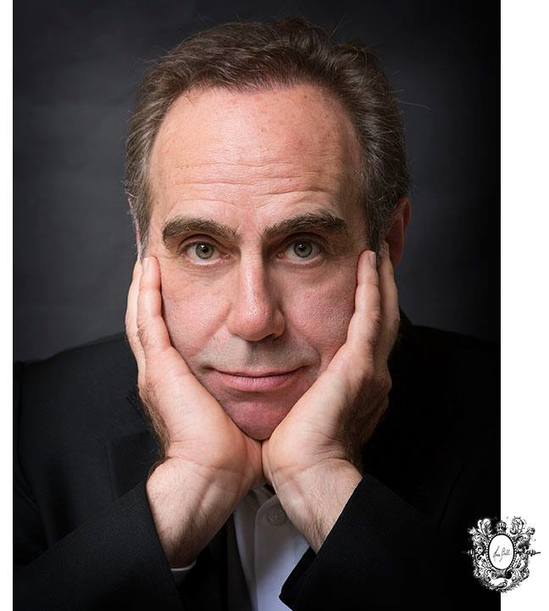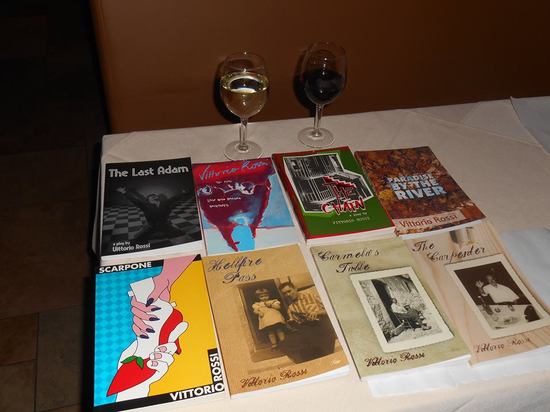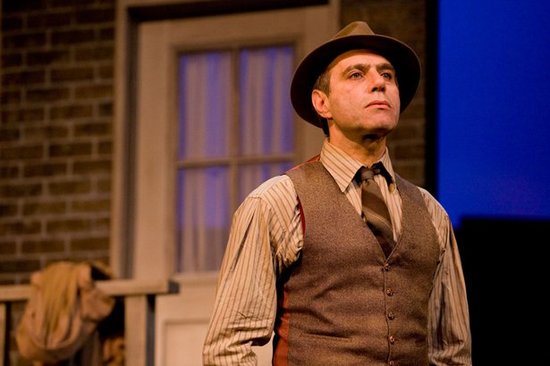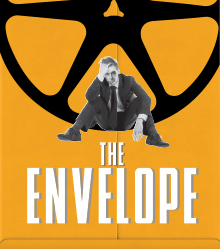Vittorio Rossi is a very important figure in the world of Montreal theatre and to the Italian community. His work has won him awards and recognition as a playwright, actor, screenwriter and director. Some of his best-known plays are A Carpenter's Trilogy, a series that constitutes three parts (Hellfire Pass, Carmela's Table, and The Carpenter), and Paradise by the River. His newest play, The Envelope about the film industry begins in March 2015 at the Centaur Theatre. The show will mark Vittorio's tenth play produced at the Centaur Theatre. I caught up with Vittorio in the warm and welcoming family atmosphere of Da Franco's restaurant in Old Montreal. This restaurant is the inspiration for the setting of The Envelope, and also happens to be and owned by my cousins! Here's what Vittorio had to say about his latest work and his successful career.
GC: Your newest play The Envelope deals with the film industry, is any of the story based on your real life experiences?
VR: Yes absolutely. At the heart of the play is a playwright/director/actor like me who's had a successful career as a playwright but hasn't had his break yet as screenwriter and director. A lot of it is due to the film system and the way it's set up here in this country, which is all based on government funding. Therefore you're forced to be at the mercy of bureaucratic decision-making.
GC: How much control do you have in the process of bringing your work from manuscript to main stage?
VR: As playwright you have a lot of control in terms of the text, story, dialogue, and action. When I'm not directing I don't control the set, costume or lighting designs, but I do have a say in the casting. As a playwright's domain, what an audience sees and experiences in terms of the storytelling, that is all my responsibility.
GC: You've acted in a few of your plays but others you did not. Why do you choose to act in some and remain behind the scenes in others?
VR: When I write a play I'm a playwright, I don't go into it thinking about writing a part for myself. When I first started off my career right out of university I acted in those more out of necessity. I didn't have the contacts yet and wasn't familiar with the theatre community and so I chose to be in them out of necessity. Once I became established professionally and had a company like the Centaur Theatre at my disposal, then I had access to hundreds of actors and actresses and therefore there was no need for me to be in them. Also it's challenging to get an original play off the ground while at the same time doing re-writes (which often happens during rehearsals) and act it in as well. I wouldn't advise someone to do both, unless they happen to be an actor and a writer as I am.
GC: How do those close to you (family or friends) feel when they're being portrayed in your work?
VR: They love it! They enjoy and are intrigued at the fact that I've taken real events and situations and fictionalized them to a degree into my plays. The trilogy A Carpenter's Trilogy is essentially the story of my father and my mother and that's the closest in historical accuracy when it comes to my writings about my family.
GC: Was your family always supportive when you told them you wanted to go into the arts?
VR: My dad was a little skeptical at first since I was a shy character and the idea of me acting and writing didn't make any sense to him. My mother was always supportive. However when I gained success, particularly with my third play The Chain, my first full length play, my father was convinced from that point that I had talent as a playwright and was able to sustain myself professionally.
GC: You've also performed in numerous plays by other talented writers (such as Steve Gallucio's In Piazza San Domenico and The Saint-Leonard Chronicles). Is it different starring in your own plays versus someone else's work?
VR: Absolutely. When I'm acting in my own plays I'm still the playwright so I have the freedom and the power to change a line, or if I see an interpretation that interferes with the essential storytelling of the play I can sit down with the director and say if it's not the direction that the scene should be going. When you're acting in someone else's play you're job as the actor is to do your job as an actor, it's not your job to re-write the line. If the way I'm acting influences the writer or director to change a line it's their prerogative to do so. The main difference is when you're acting in someone else's work you're not there to nurture the text at all. You can bring something up if there's a problem, which I have, like if a line is repetitive or inorganic, but ultimately it's not you're power to make any changes.
GC: Between acting, directing and writing what is your favorite and why?
VR :I definitely love acting and writing. What I love about the writing is that it's totally you're creation, it's like you're creating a child. I've written about a dozen plays and in a way it's as if I've created a dozen little children. They each have their own life and story. There's a certain power that I have with that, I can control what I want to say and how I want to say it. There's a certain gratification with that. As an actor it's pure fun, I just love it. Out of these three jobs the first one that came to my mind as a child was acting. Even when I acted last year on stage, at my age now I still feel like that six-year-old kid trying to imitate a soldier. When it comes to directing I actually prefer directing film than I do stage. Although films are more challenging, I feel more naturally inclined to direct a film rather than a play. In a film you're dealing with shorter segments. For instance; let's say if you're filming a scene in a restaurant, the restaurant is the scene. On stage the director has to think more metaphorically and more poetically. In my play Paradise By the River, where the scenes were often in different settings, we really had to think about how to pull it off. One moment a scene would be in prison then the next would be in someone's backyard, then in an office, you have to figure out how to do this on a stage. Whereas if you were shooting a film you'd have more space and locations. So in that sense my mind works better with the reality of film.
GC: Did you always know you wanted to work in the arts?
VR : Yes. I knew from grade three that I wanted to be an actor.
GC: Who are some of your inspirations?
VR: My playwriting heroes are Tennessee Williams, Arthur Miller, David Mamet and of course William Shakespeare. Some of my favorite actors include Dustin Hoffman, Al Pacino, Robert Deniro, Jack Nicholson, Gary Oldman, and Daniel Day Lewis. But the absolute best in my eyes hands down is Marlon Brando.
GC: You've become a popular figure for the Italian community, what has the response been from the Italian community as well as non-Italians?
VR: The Italians appear to be proud. I still get the feeling that a lot of them feel as if I do this simply as a hobby. They don't realize that this has been my profession for the past 30 years. But they're very supportive and love it when they're culture is portrayed on the stage. As for the general public, I've had great respect from them. I always feel proud when I go somewhere and people recognize me based on my work. It's something that I take a lot of pride in.
GC: Many who want to make it in the entertainment industry or the arts move out of Montreal due to language issues and growing opportunities elsewhere. The recent closing of the comedy works has let a huge dent in comedy. What do you think of the current state of theatre in Montreal?
VR: If you were to remove the Centaur Theater from the picture, in terms of the English language you're basically dealing with very experimental theater groups that I believe struggle greatly with finding and audience. We do have the Segal Center but they don't do anything original. They simply bring in and rework existing works. To me Centaur has always been the epitome of English language theatre in this province. If we to lose the Centaur theater I don't know where else we would go.
GC: What projects are you working on now?
VR: Right now I'm fully focused on The Envelope. I'm completing the fourth draft and finalizing the set design. Once that's done, over the holidays I will be getting back to a screenplay I will be finishing and hoping to get produced.
GC: What is your favorite quote?
VR: "In vino veritas". My father loved this saying. It's Latin; it means that drinking wine brings out the truth.
And cheers to a great interview! Be sure to catch Vittorio's latest play The Envelope, from March 24 to April 19, 2021 at the Centaur Theatre.




Leave a comment